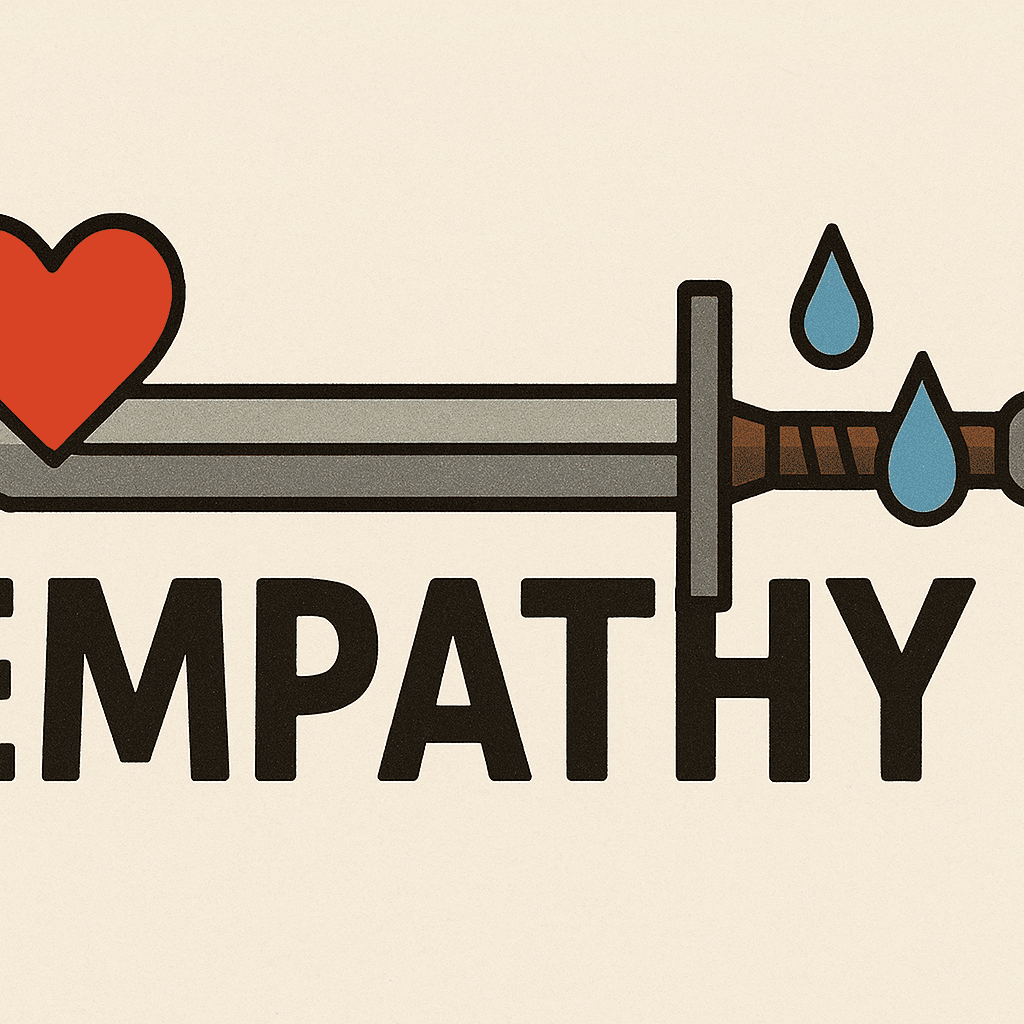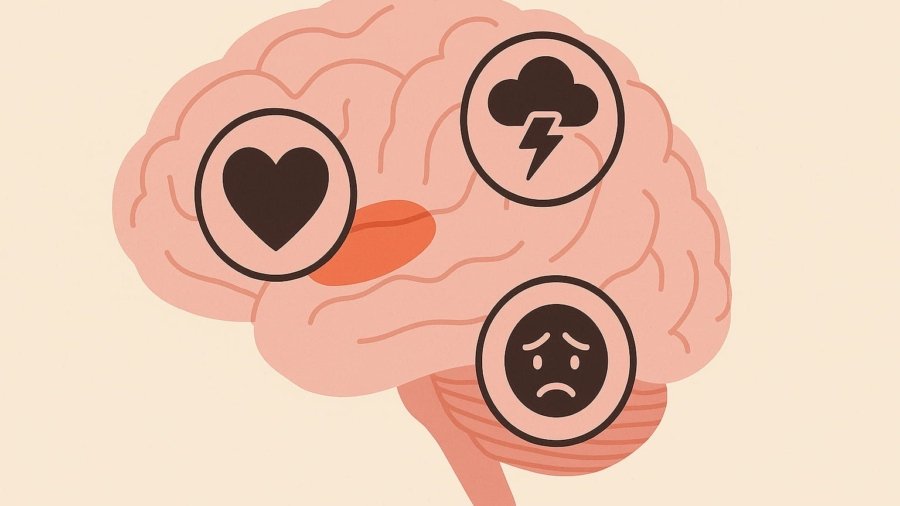The very moment we hear “emotional intelligence”, we immediately picture a silent superpower, a soft light in a dark room, something that enables us understand others, get through conflict with peaceful understanding and express ourselves with grace. A character that is praised in leadership seminars, celebrated in therapy sessions and the most sought-after gift in every meaningful relationship.
But what if this light we all seek for sometimes casts shadows of its own?
The deeper we feel, the more we sometimes carry. The more we understand others, the harder it is to set boundaries. And the more emotionally sensitive we are, the more likely we may be to absorb what was never ours to hold.
This is the paradox of emotional intelligence. The very gift that helps us connect can also make us lose ourselves. A skill meant to build bridges can sometimes build walls. And as more people strive to become emotionally intelligent, many discover that this very ability comes with unexpected consequences.
What Is Emotional Intelligence?
Emotional intelligence (EI) is the ability to recognise, understand and manage emotions, both our own and the emotions of others. It involves empathy, self-control, social skills and emotional awareness.
Cardiff and Vale University Health Board (2020) highlights that the term was first conceptualised by psychologists Peter Salovey and John D. Mayer in 1990, who defined EI as:
“The ability to monitor one’s own and others’ feelings and emotions, to discriminate among them, and to use this information to guide one’s thinking and actions.”
Their initial work paved the way for Daniel Goleman’s model, which popularised the concept and extended it to practical domains such as workplace success and leadership. According to Viezzer (2024), The Goleman theory defines emotional intelligence in different components:
- Social Skills – Getting along well with others and building strong relationships
- Self-Awareness – Knowing what you’re feeling and why
- Self-Control – Staying calm and in control, even when you are upset
- Relationship Management – Set of social skills e.g. team management.
- Empathy – Understanding how other people feel
According to research, people with high emotional intelligence tend to manage stress more effectively, communicate better and enjoy healthier relationships. But that is only a part of the story.
When Emotional Intelligence Becomes a Double-Edged Sword

Like any skill, emotional intelligence can be utilised for good or bad. A growing body of research is analysing how emotionally intelligent people are also more capable of manipulating, emotional control over others or even psychological gaslighting.
Viezzer (2024) at Simply Psychology discusses this darker side to emotional intelligence, explaining how people can use emotional awareness to deceive, exploit or dominate in personal or professional relationships.
These individuals with high emotional intelligence tend to carry too much awareness which some refer to as ” the curse of knowledge” and others “intellectualisation” (processing pain through logic instead of emotion). Therefore, they easily:
- Sense changes in tone
- Already know why things go wrong even before it happens
- Know the root cause of their pains and trauma
- Explain every trigger and patterns of their pains
- Notice the how unusual a glance is
- Explain everything about why they are hurt
- They Replay conversations to notice what and analyse language, tone just to know what was said, intended, and hidden.
The Moral Superiority Trap
Emotional intelligence becomes moral superiority when one only becomes self-aware (emotionally intelligent) just to feed their ego, brag about their intelligence and judge others for not being as intelligent as they are. They turn their healing into a tool of judgment and look down on others who are not up to their levels. They point out other people’s triggers while pretending they have none.
Leadership and the Emotional Intelligence Paradox
At workplaces, leaders and workers that are emotionally intelligent are usually seen as having a big superpower. It helps them balance things like being firm and kind as well. A good leader or co-worker for example, might give firm orders but yet care about how their followers feel.
However, Lo et al., (2023) states that people who are emotionally intelligent always prioritise everyone else’s feelings over their own. This is especially true in stressful work environments.
So, while emotional intelligence can help you support others, it can also wear you down if you are always expected to be strong for everyone and never take a break for yourself.
“To that co-worker or boss that stays calm in front of everyone but never safe in him or herself”
Emotional Intelligence in Relationships: A Delicate Dance
One of the most prevalent areas where this paradox shows up is in romantic and family relationships. Emotional intelligence allows people to sense others’ needs and moods. But when paired with unresolved wounds or poor boundaries, this same ability can turn into emotional over-functioning, where one partner carries the entire emotional load.
In the article “How Emotional Intelligence Strengthens Romantic Relationships,” readers are reminded that while emotional intelligence builds connection, it also requires authentic communication and mutual responsibility. When only one person practices emotional awareness, imbalance begins to grow.

The Healing Side of the Paradox
Despite these complications, emotional intelligence is a wonderful and life-changing ability. Its paradox lies not in its danger, but in its depth. Like a river, it nourishes, but can also flood. To master it, need to be ready to:
- Balance emotional awareness with emotional boundaries
- Practice without sacrificing our own needs
- Develop self-reflection without falling into self-absorption
- Use our emotional skills to connect and not control
- Allowing yourself to feel pain and not perform it
- Not always translate your pain into something palatable
The Gentle Power of Knowing and Feeling

The paradox of emotional intelligence teaches us an important lesson that, “being emotionally intelligent is not the same as being emotionally wise”. Wisdom comes from balance. It comes from knowing when to speak, when to feel and when to step back.
Emotional intelligence is a river we must learn to swim and not control.
If you have found yourself overwhelmed by your emotional depth or used your emotional insight in ways that made you feel disconnected or unwell, you are not alone. Then remember
Stop making your suffering make sense and let it simply be, because sometimes you do not heal by explaining what hurts but the moment you feel safe enough to stop explaining. Confusion does not always need to be useful.
So, in your quest for knowledge, beware it does not become a weapon against your own mental health.
REFERENCES
Cardiff and Vale University Health Board. (2020). Emotional intelligence [PDF]. Cardiff and Vale University Health Board. https://cavuhb.nhs.wales/files/toolkits/organisational-change/emotional-intelligence-pdf/
Lo, W. Y., Lin, Y. K., Lee, H. M., & Liu, T. Y. (2023). The lens of Yin-Yang philosophy: the influence of paradoxical leadership and emotional intelligence on nurses’ organizational identification and turnover intention. Leadership in Health Services, 36(3), 434-457.
PsycheShare. (2025, June 15). How emotional intelligence strengthens romantic relationships. https://psycheshare.com/how-emotional-intelligence-strengthens-romantic-relationships/
Viezzer, S. (2024, January 29). The dark side of emotional intelligence. Simply Psychology. https://www.simplypsychology.org/the-dark-side-of-emotional-intelligence.html



Add a Comment